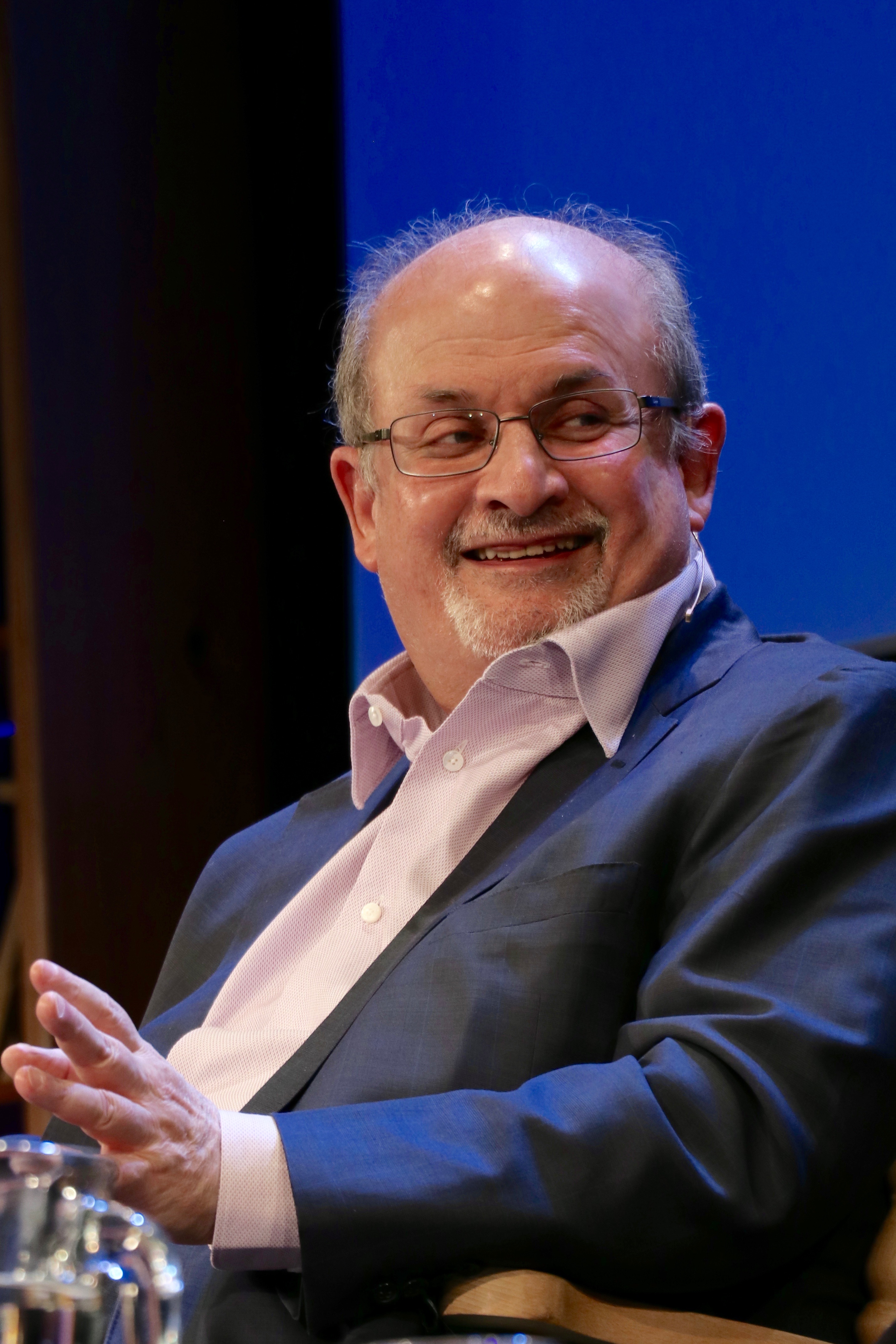Salman Rushdie Quotes
“There is nothing like a War for the reinvention of lives…”
Source: Midnight's Children
Source: Midnight's Children
Source: Midnight's Children
Source: The Ground Beneath Her Feet
“Nobody can judge an internal injury by the size of the superficial wound.”
Variant: You can't judge an internal injury by the size of the hole.
Source: The Satanic Verses
“My heart broke open and history fell in.”
Source: The Ground Beneath Her Feet
“Sometimes we feel we straddle two cultures; at other times, that we fall between two stools.”
Source: Imaginary Homelands: Essays and Criticism 1981-1991
“everything is relative, one man’s absolute belief is another man’s fairy tale;”
Source: Two Years Eight Months and Twenty-Eight Nights
Source: The Enchantress of Florence
“Life is lived forward but is judged in reverse.”
Source: Joseph Anton: A Memoir
Source: Midnight's Children
Source: The Enchantress of Florence
“When you know what you're against you have taken the first step to discovering what you're for.”
Source: The Ground Beneath Her Feet
Salman Rushdie — Talking with David Frost (1993)
“It is a funny view of the world that a book can cause riots.”
(When asked if he apprehended riots) Interview with Shrabani Basu (September 1988), quoted in Elst, Koenraad (2001). Decolonizing the Hindu mind: Ideological development of Hindu revivalism. New Delhi: Rupa. p. 32
The Times of India, ‘Don’t allow religious hooligans to dictate terms’ http://archive.is/ecOpa (16 January 2008)
Herbert Reade Memorial Lecture (6 February 1990)
The Hindu interview (2012)
“It matters, it always matters, to name rubbish as rubbish … to do otherwise is to legitimize it.”
"Outside The Whale" in Granta (1984) http://web.archive.org/web/20110618004653/http://www.granta.com/Magazine/11/Outside-the-Whale/Page-2
“I don't think there is a need for an entity like God in my life.”
Salman Rushdie — Talking with David Frost (1993)
Step Across This Line: Collected Nonfiction 1992–2002
“What kind of God is it who's upset by a cartoon in Danish?”
Interview with Bill Moyers, Bill Moyers on Faith & Reason (23 June 2006) http://www.pbs.org/moyers/faithandreason/portraits_rushdie.html - transcript http://www.pbs.org/moyers/faithandreason/print/faithandreason101_print.html
Statement in the Wall Street Journal, Salman Rushdie: ‘I Stand With Charlie Hebdo, as We All Must’ http://blogs.wsj.com/speakeasy/2015/01/07/salman-rushdie-i-stand-with-charlie-hebdo-as-we-all-must/ (7 January 2015)
"In God We Trust" (1985)
The Hindu interview (2012)
Real Time with Bill Maher TV show (7 October 2005)
Address at Columbia University (1991)
“Our lives teach us who we are.”
I have learned the hard way that when you permit anyone else's description of reality to supplant your own — and such descriptions have been raining down on me, from security advisers, governments, journalists, Archbishops, friends, enemies, mullahs — then you might as well be dead. Obviously, a rigid, blinkered, absolutist world view is the easiest to keep hold of, whereas the fluid, uncertain, metamorphic picture I've always carried about is rather more vulnerable. Yet I must cling with all my might to … my own soul; must hold on to its mischievous, iconoclastic, out-of-step clown-instincts, no matter how great the storm. And if that plunges me into contradiction and paradox, so be it; I've lived in that messy ocean all my life. I've fished in it for my art. This turbulent sea was the sea outside my bedroom window in Bombay. It is the sea by which I was born, and which I carry within me wherever I go.
"Free speech is a non-starter," says one of my Islamic extremist opponents. No, sir, it is not. Free speech is the whole thing, the whole ball game. Free speech is life itself.
Address at Columbia University (1991)
